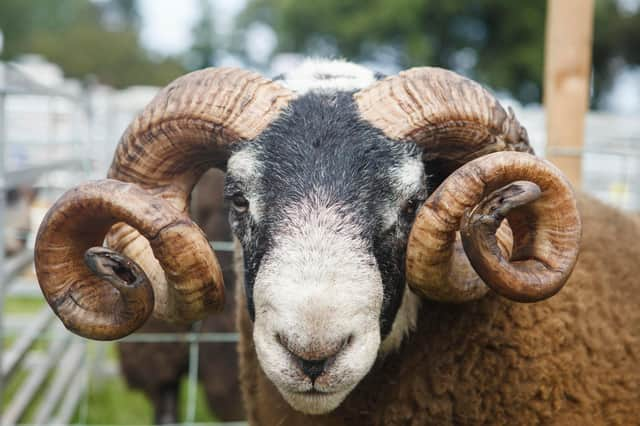Farming: Funding boost for studies to aid net zero drive


Two SRUC-led projects will receive nearly £95,000 from a total of ten sharing the overall budget which is being provided by the Agriculture and Horticulture Development Board (AHDB) and the Biotechnology and Biological Sciences Research Council (BBSRC) to address challenges which had been identified by farmers.
The projects involve a number of disciplines, including technology, regenerative agriculture, soil health, improving livestock farming systems and the development of new resistance mechanisms.
Advertisement
Hide AdAdvertisement
Hide AdThe SRUC’s Dr Jackie Stroud will investigate how earthworms can reduce the risk of plant diseases through the effective management of plant residues in partnership with Rumiana Ray, Professor of Plant Pathology at the University of Nottingham in a project designed to help farmers benefit from the biocontrol services provided by earthworms.
“The earthworm species Lumbricus terrestris plays an important role in suppressing fungal plant pathogens. This funding enables us to work with farmers and integrate lab to field biocontrol research to reduce pesticide use and resistance development,” said Stroud.
Professor Georgios Banos will look at improving genetics to breed climate resilient sheep, following on from his Horizon2020 European project which looked at resilience characteristics in Scottish Blackface lambs in response to changing weather conditions.
The new project will seek to identify genomic markers and regions associated with climate resilience and look at breeding values of individual animals for climate resilience.
“Outcomes from this work may inform future breeding programmes aiming to enhance animal resilience to impending climate change and underpin a favourable and mutually beneficial interaction between livestock and the environment,” said Banos.
Also in Scotland, Dr Matthew Tinsley at Stirling University will develop best-practice for tank-mixing biopesticides while by Dr Beatriz Orosa, University of Edinburgh will investigate how plants and pathogens battle at the molecular level.
Dr Amanda Bennett, Environment Scientist at AHDB said that agriculture would be instrumental in reducing the impact of climate change by cutting greenhouse gas emissions and increasing carbon storage:
“These new research projects will provide much needed progress in scientific knowledge on how farming can reach net zero by 2040.”
Advertisement
Hide AdAdvertisement
Hide AdYesterday also saw farmers in England given the opportunity to benefit from £25 million of funding to encourage them to invest in cutting-edge robotics and technology to boost food production.
Businesses will be able to claim 40 per cent grants ranging from £35,000 up to £500,000 for investment in productivity-boosting equipment such as driverless tractors, robots that harvest, spray crops and weed, and automated milking systems through the Farming Investment Fund. Defra said the claim period opened now and would run for two months.
Farmers will also be able to apply for grants towards new slurry management systems. They can purchase equipment that lowers the acid in slurry which in turn increases the nutrients for plants and reduces ammonia emissions and pollution to contribute towards the government’s clean air strategy.
Comments
Want to join the conversation? Please or to comment on this article.